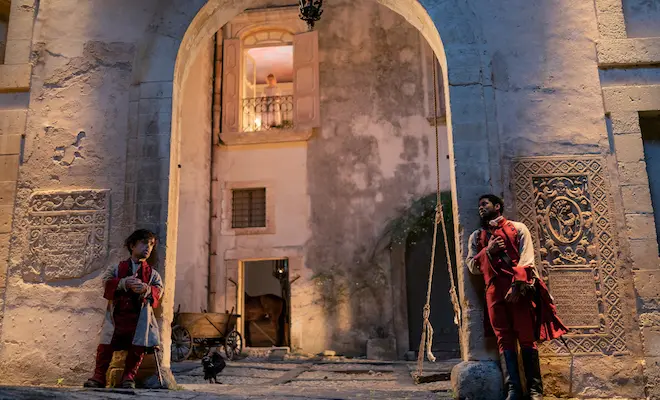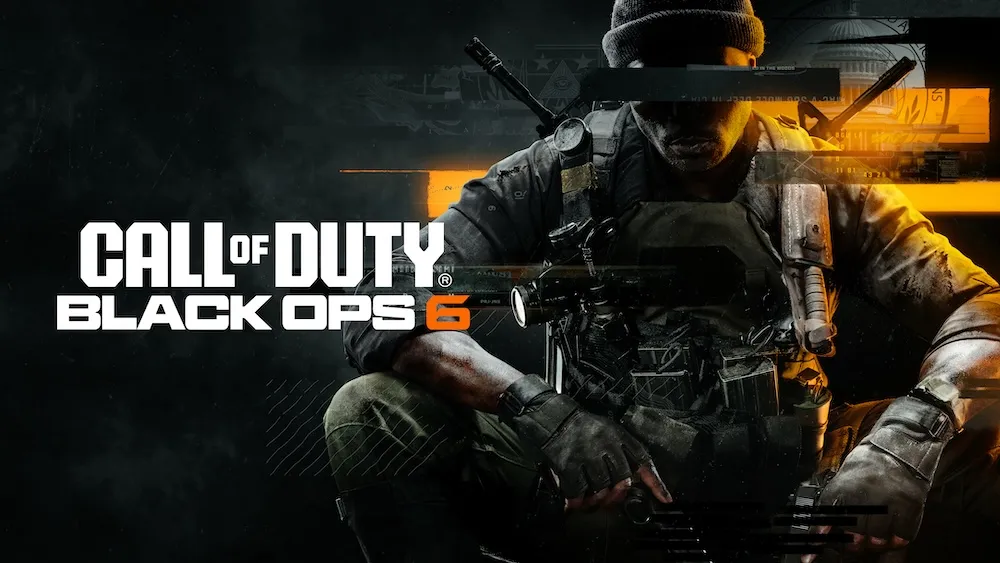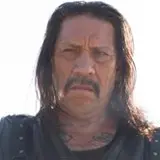 Danny Trejo is a fascinating man. He started his acting career at age 39, after serving time in prison throughout the ’70s. In 1984, at the suggestion of a friend, Trejo went out to be an extra in a prison scene on a low budget Golan/Globus film called Runaway Train, when novelist and screenwriter, Eddie Bunker, who himself served time in California, recognized Danny from a stint at San Quentin and asked if Danny would like a larger role in the film. Danny said yes, of course, and started an acting career that has spanned well over 170 projects in almost 30 years.
Danny Trejo is a fascinating man. He started his acting career at age 39, after serving time in prison throughout the ’70s. In 1984, at the suggestion of a friend, Trejo went out to be an extra in a prison scene on a low budget Golan/Globus film called Runaway Train, when novelist and screenwriter, Eddie Bunker, who himself served time in California, recognized Danny from a stint at San Quentin and asked if Danny would like a larger role in the film. Danny said yes, of course, and started an acting career that has spanned well over 170 projects in almost 30 years.
I recently sat down with Trejo, one of the hardest working actors in Hollywood, to talk about his new film, Machete Kills, among other things. Even though he had been up since the wee hours of the morning doing press on local television, and one-on-ones with writers up until the point we sit down together in the late afternoon, Danny is still full of energy and ready to go. Instantly, we can see that Danny Trejo loves what he does. Whether it’s acting in front of a camera, or pitching ideas to his friend and frequent collaborator, Robert Rodriguez, Danny knows the Hollywood game, and he’s good at it. The man loves what he does, and he loves talking about it.
“The first time we talked about Machete was 20 years ago during Desperado,” Trejo explains when asked about the origins of Machete Cortez. “(Robert Rodriguez) Saw me and saw my character and he said, ‘Danny, I got the perfect role for you’ he said, ‘It’s you and it’s a leading role,’ and I was like, okay. Even me, I wasn’t used to seeing a guy that looks like me as a leading man, but he kind of changed that. Robert really kind of told Hollywood, ‘hey, a leading man is anyone who can carry a movie,’ and I’ve been blessed to for him to use me.”
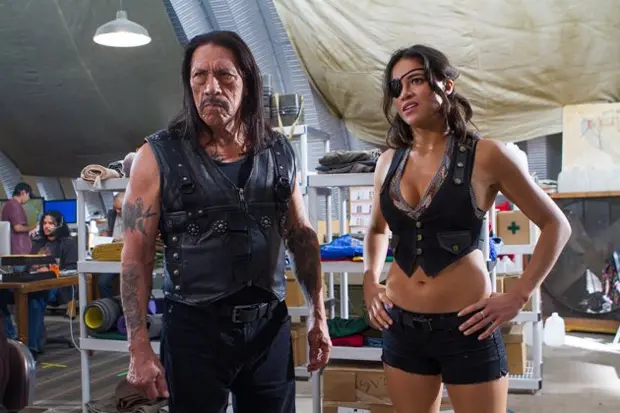
Originally, Machete started out as a character in Rodriguez’s Spy Kids, and then came the fake trailer in front of the 2007 theatrical release of Grindhouse, the Tarantino/Rodriguez film collaboration that brought the style of the violent, sometimes silly, low budget films from the ’70s to a new audience.
“When we came out of the theater, the audience just ran us down,” Trejo explains. “Hey, we gotta make this movie. So that’s where that came from. We thought we were gonna be done with it when we made that trailer, but everybody loved it.”
Trejo is constantly working. He has, according to IMDB, 23 new projects in some sort of development at the time of this writing. It’s amazing for a man in his late 60s.
“You know they told me a long time ago, ‘a busy man has time to do everything,” Trejo says. “I always kind of live like that. My mom used to say, ‘Danny, you hated sleeping. You always thought you were missing something,’ and so I’d get four hours sleep or and then I get up and find something to do. I’d walk around the block or get in my car.”
Machete Kills is his latest project. The character of Machete Cortez is an over-the-top, violent anti-hero in the same vein as classic cinematic tough guys like Charles Bronson’s Paul Kersey from the Death Wish films, or even Clint Eastwood’s “Dirty” Harry Callahan. What makes the character work is that Trejo and Robert Rodriguez are in on the joke. Machete is essentially the Mexican version of Mike Myer’s Austin Powers.
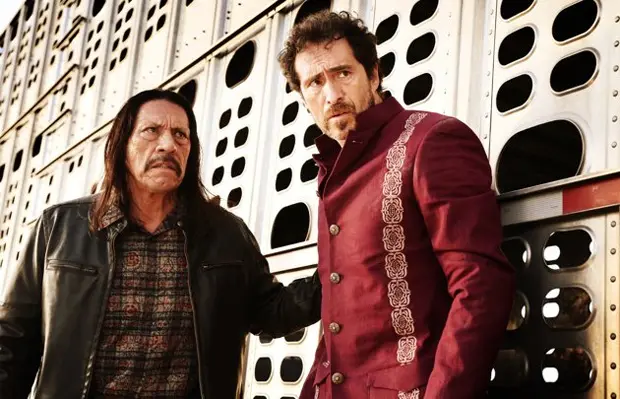
“I think that was Robert’s intention. His intention was creating the first Mexican superhero,” Trejo explains. “But he doesn’t see through walls, or fly or wear tights. He just kicks ass. He’s not Iron Man, he’s not Superman, he’s not Batman, he doesn’t have great cars; he’s got a machete. He’s a bad ass.” And if Machete Kills is any indication, they are on the right track. Trejo even has an action figure of the character. “I got one up on the mantle. I’ve signed a bunch. I sign more of those than anything else. In fact, it sold out when it first came out. It’s fun. It’s exciting.”
Machete Kills keeps the fun going, and there is definitely room for character growth and myriad adventures. I asked Danny where he saw Machete Cortez, and his own career, going in the future.
“It can go wherever it wants,” Trejo says. “I’m just having a blast. A long time ago, I had to just put this whole movie making is my job. I didn’t get into it until I was 39. I’d never been on a movie set. So when it started happening and people started noticing me, you really start thinking you’re somebody.” Trejo elaborates more on his success. “Me and my mentor, a guy named Eddie Bunker, who was a writer who wrote some great criminal novels. He wrote a book called Education of a Felon. He kinda said ‘this is our job, this is what we do. It’s no different than a house painter or a plumber or a writer. It’s our job. The only difference is that instead of using a hammer or nails, you use your face. Your face is your job.’ People ask me what I’m doing, I say I’m doing this or doing that, or would I do this? I’ll paint any house you want me to paint. It keeps me grounded. You got a good script, bring it. Get it to my agent and let’s see what we can do with it.”
It’s evident that Danny loves talking about working in show business. And after 30 years, he has many great stories to tell.
“I did a film called Animal Factory with Steve Buscemi and Willem Defoe,” Trejo recalls, “I was working on Con Air when Eddie Bunker gave me that script he wrote and he says, ‘here Danny, you run with this,’ and I handed it to Steve Buscemi and said, ‘Steve, read this or I’ll kill you,’ as a joke, and Buscemi liked it, even though there wasn’t anything in it for him. He ended up directing it for me and it turned out to be a good little movie.”

Arguably, Danny Trejo is at his best when working with Robert Rodriguez. Rodriguez, who is actually Trejo’s second cousin–something both men learned very late in their collaborative careers–has really changed modern filmmaking. Back in the late ’90s, when George Lucas was spouting the benefits of digital cinema, Rodriguez took the technology and ran with it, creating his own studio space in Austin, Texas and making small movies with huge Hollywood stars. Rodriguez, in his career, has inspired a new generation of filmmakers.
“My son right now is co-directing and producing a film called Snapshot,” Trejo says. “He did it by shadowing Robert Rodriguez and learning from him. I think Robert has let people know that hey, we can do this if you want. The studios kept it untouchable for so long, and Robert showed people how to do it.”
The conversation steers back to Machete Kills, and Trejo talks about filming the much-anticipated sequel.
“We had the time of our lives,” he said, laughing. “I mean, I got to work with Mel Gibson. It’s funny, I had a sword fight with him, and Robert yelled ‘action,’ and I threw my sword down, and Robert asked, ‘what’s wrong?’ and I said I’m not fighting William Wallace, are you crazy? Not with a sword, get me a pistol! Even Mel laughed.”
Lady Gaga plays a small, but important role in the new film, and Danny explains how it all came about.
“I was at Shamrock Tattoos getting my back piece–I got my kids tattooed on my back–their portraits–and I said I’m doing Machete Kills, and Lady Gaga happened to be getting a tattoo and she said, ‘god, I’d love to do that,’ so I called Robert and Robert said, ‘I’m getting ready to talk to her people right now.’
“People have this image of people because of what we do, and she (Gaga) is one of the most professional ladies I’ve ever worked with. She’s a trooper. She’s never done a film, and she kicked it in the ass. Charlie Sheen, the same thing. He plays the President, and I felt like standing up and saluting whenever he talked. And Amber Heard, she’s just beautiful, and Alexa Vega, the little girl from Spy Kids, she had to beg Robert to be in this. And Robert was like, ‘Alexa, it’s an adult movie,’ and Alexa was like, ‘Robert, I’m 25!”
With our time running short, I asked Danny about the level of input that he has in creating the story for the Machete films. He is listed with a ‘story by’ credit in Machete Kills.

“I’ll call and say, ‘Hey Robert, how about killing a guy like this, or doing something with a helicopter,” Trejo says. In Machete Kills, there are at least three deaths involving helicopters. “Robert is amazing. He’s got some of the craziest ideas ever, and it’s a lot of fun and it looks great on the screen.”
Machete Cortez is one of those characters that transcends the movies. Trejo, whose career has seen him do everything from TV, to blockbuster films, to video game voice-overs has literally done it all, but is Machete his greatest role?
“I just want to be known for my work. I love Machete, I love that even if I wasn’t in it, I’d love this movie. This character is bad ass,” Trejo explains and then he smiles, a mischievous twinkle in his eye. “You know, I got the Muppets coming out in March. That’s me and Ray Liotta in a musical.” He laughs.
With our time now up, Danny Trejo–Machete himself–shakes my hand and wishes me well, and one look in his eyes tells me he was very sincere in his words. Danny Trejo is not only the hardest working man in show business, he may also be the nicest.
Just don’t tell the bad guys.
Machete Kills is in theaters on October 11, 2013.

